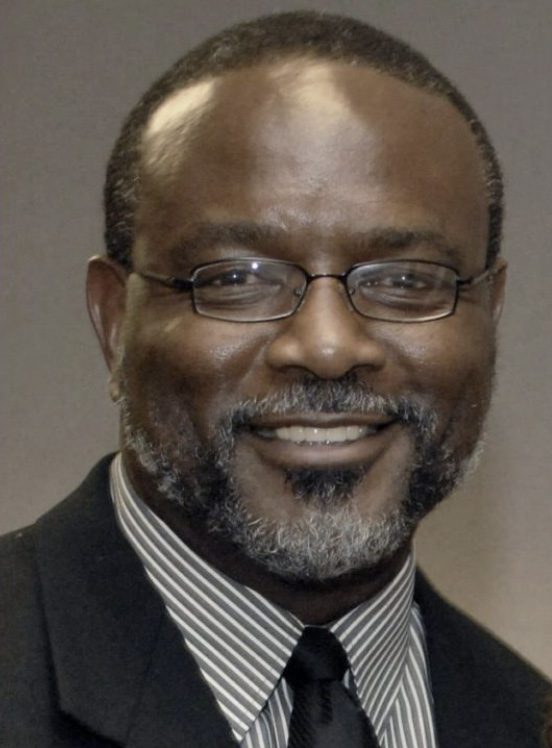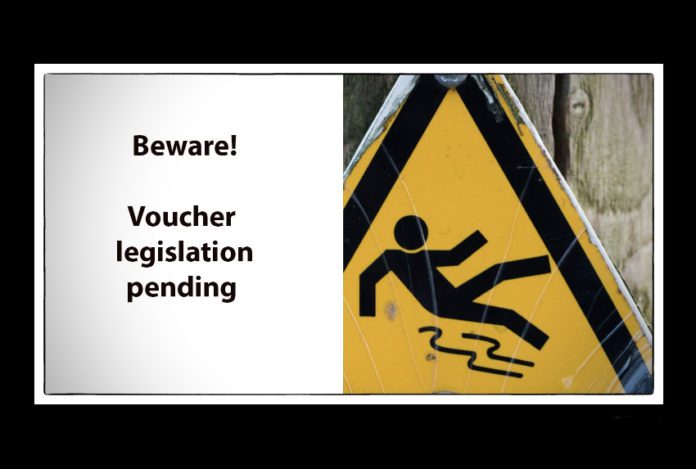by Curtis Weathers —

I have been avoiding the topic of vouchers for quite some time. For me, it is one of the most boring educational topics of all time. Yet there seems to be a lot of behind-the-scenes tinkering taking place in our state legislature that involves vouchers both directly and indirectly.
So, let’s take a peek behind the curtains and see what might be going on. First, let’s start with a little context.
The first voucher program began in Milwaukee, Wisconsin in 1991. At that time, 341 students took advantage of those vouchers. Fast forward to 2021 and, according to EdChoice, a total of almost 250,000 students now are using voucher programs in 16 states and the District of Columbia.
However, many voucher opponents believe these programs undermine the fundamental promise of high-quality, equitable education for all students.
Private school vouchers do not do what education policies are supposed to do, which is promote positive educational results. Instead, studies show that students using vouchers to attend private schools do not perform any better than their public-school peers. Some studies have found that academic achievement actually worsens for voucher students.
Let us be honest. Vouchers are a way to redirect funds from public schools to private institutions and voucher advocates have been ramping up efforts across the country to change laws in their favor.
Every time I read about Tennessee Gov. Bill Lee’s new student-based funding formula, I keep thinking it is some sort of trojan horse designed to sneak in more public funding for private schools. And I am not the only one who believes this.
Many believe Lee’s new funding formula would make it easier for Tennessee to expand its private school voucher program. Lee, of course, rejects the assertion that vouchers are one of the reasons he is pushing to overhaul our funding system.
Voucher advocates are taking small but very calculated steps towards achieving their goals. They first create small voucher programs targeted at vulnerable groups of students, often those with disabilities. Then they expand that to other subgroups, even if there is no evidence of need or clear evidence of harm.
Now they have a new strategy. They have expanded their tactics to include students in school districts that do not offer year-long, in-person learning.
Advancing through the state legislature is a bill that would provide public money for private school tuition for students whose school systems do not offer in-person learning the entire school year.
The bill would extend voucher eligibility for the three upcoming school years (beginning September 1, 2022) to students in any district that does not offer 180 days of in-person learning because of the pandemic.
The legislation provides remedies for parents who complain about schools not providing in-person learning because of the pandemic. It does not afford the same opportunity for parents upset about the absence of mask mandates when COVID cases are surging.
Last year, House Speaker Cameron Sexton (R-Crossville), in response to the state’s low test scores, threatened to call a special legislative session to approve voucher legislation allowing parents to move taxpayer dollars from public to private schools.
Some lawmakers are worried that this current proposal could trigger voucher eligibility in districts that might temporarily switch to remote learning to take advantage of the new provisions.
Private school advocates have the audacity to suggest that vouchers promote and advance civil rights, which is absurd. Voucher programs arrived on the scene after the Supreme Court’s (1954) Brown v. Board of Education decision that allowed white students to attend segregated private schools and thus avoid attending integrated public schools.
From my perspective and years of experience, voucher programs are more likely to increase school segregation than promote integration.
“Private school vouchers rob the public treasury, pay for discrimination, do not improve student outcomes, increase segregation, and weaken an enormously important public good,” says Jessica Levin, a senior attorney at the Education Law Center and director of Public Funds Public Schools. I wholeheartedly concur.
Maybe I’m just overly suspicious, but a new student-based funding formula and new pandemic-inspired voucher legislation seem to equate to more liberal voucher opportunities. We’ll see how it all adds up as the year progresses.
(Follow TSD education columnist Curtis Weathers on Twitter (@curtisweathers); email: curtislweathers@gmail.com.)



